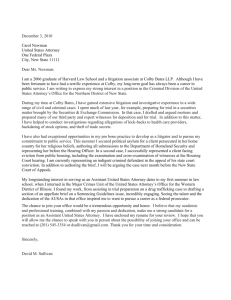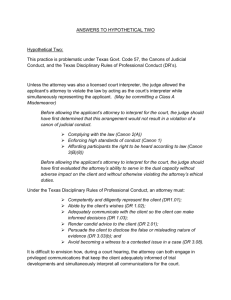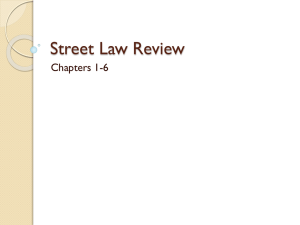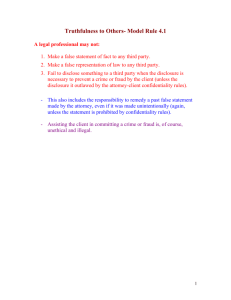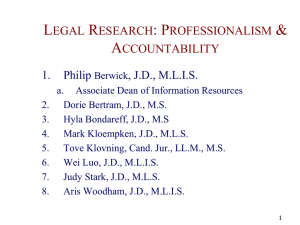Charter of Rights and Freedoms 7. Everyone has the right to life
advertisement
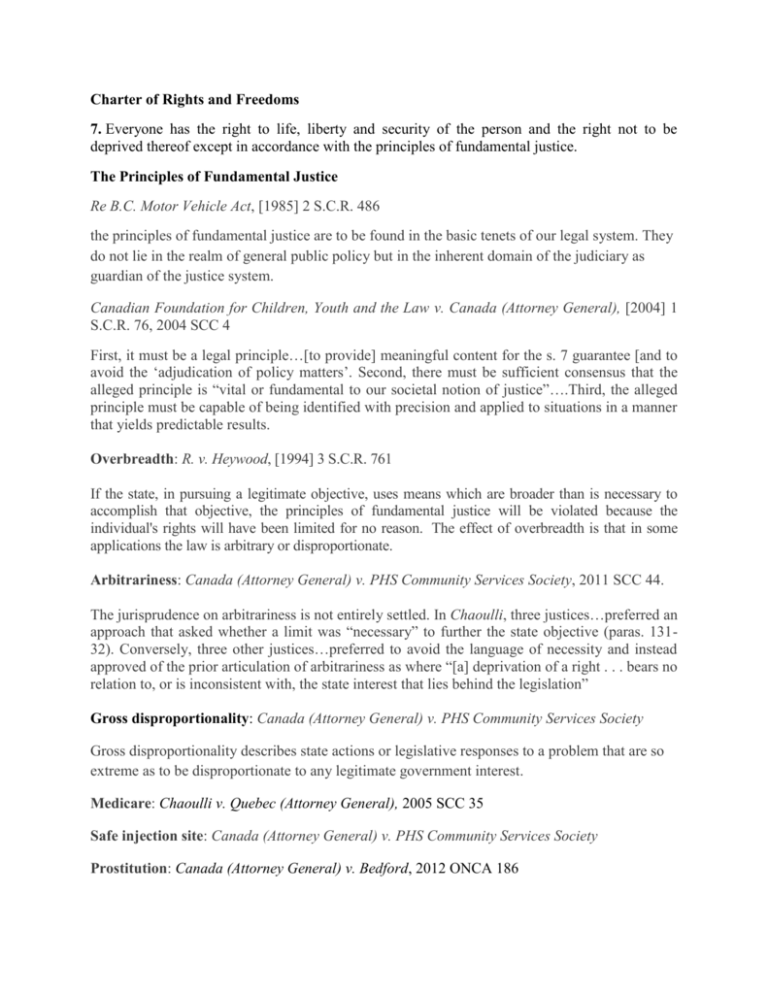
Charter of Rights and Freedoms 7. Everyone has the right to life, liberty and security of the person and the right not to be deprived thereof except in accordance with the principles of fundamental justice. The Principles of Fundamental Justice Re B.C. Motor Vehicle Act, [1985] 2 S.C.R. 486 the principles of fundamental justice are to be found in the basic tenets of our legal system. They do not lie in the realm of general public policy but in the inherent domain of the judiciary as guardian of the justice system. Canadian Foundation for Children, Youth and the Law v. Canada (Attorney General), [2004] 1 S.C.R. 76, 2004 SCC 4 First, it must be a legal principle…[to provide] meaningful content for the s. 7 guarantee [and to avoid the ‘adjudication of policy matters’. Second, there must be sufficient consensus that the alleged principle is “vital or fundamental to our societal notion of justice”….Third, the alleged principle must be capable of being identified with precision and applied to situations in a manner that yields predictable results. Overbreadth: R. v. Heywood, [1994] 3 S.C.R. 761 If the state, in pursuing a legitimate objective, uses means which are broader than is necessary to accomplish that objective, the principles of fundamental justice will be violated because the individual's rights will have been limited for no reason. The effect of overbreadth is that in some applications the law is arbitrary or disproportionate. Arbitrariness: Canada (Attorney General) v. PHS Community Services Society, 2011 SCC 44. The jurisprudence on arbitrariness is not entirely settled. In Chaoulli, three justices…preferred an approach that asked whether a limit was “necessary” to further the state objective (paras. 13132). Conversely, three other justices…preferred to avoid the language of necessity and instead approved of the prior articulation of arbitrariness as where “[a] deprivation of a right . . . bears no relation to, or is inconsistent with, the state interest that lies behind the legislation” Gross disproportionality: Canada (Attorney General) v. PHS Community Services Society Gross disproportionality describes state actions or legislative responses to a problem that are so extreme as to be disproportionate to any legitimate government interest. Medicare: Chaoulli v. Quebec (Attorney General), 2005 SCC 35 Safe injection site: Canada (Attorney General) v. PHS Community Services Society Prostitution: Canada (Attorney General) v. Bedford, 2012 ONCA 186

